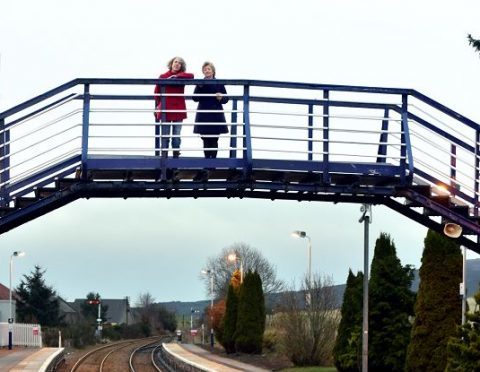A campaigner has urged rail chiefs not to rule out vital disabled access improvements at an Aberdeenshire station as part of a multimillion-pound project.
Locals have been calling for better access at Insch Railway Station for two decades, with elderly and disabled passengers often struggling to use the footbridge to get to and from Platform One for northbound trains.
The appeal came after it emerged a long-awaiting rail upgrade between Aberdeen and Inverness had been delayed – and doubled in cost from £170million to an estimated £330million.
The infrastructure project was scheduled to be completed by March 2019, but is now due to be finished six months late to allow some work to fall within the 2019-20 financial year.
Last year, councillors were left furious that the plans to upgrade the line between the two cities – which involves redoubling the track between Aberdeen and Inverurie – omitted disabled access improvements in Insch.
And, speaking yesterday, local campaigner Richard Openshaw called for the work to enhance disabled access at Insch to take place between March and September 2019. This is when a portion of the upgrade work on the line will take place.
Earlier this month, a meeting of the Nestrans board heard that work to resolve the problems at Insch had been ruled out until 2019.
Kemnay man, Mr Openshaw, said: “The delay of the Aberdeen to Inverness upgrade provides an excellent opportunity to address the access issue at Insch station.
“With work on this ruled out before March 2019, combining it with the upgrade would surely prove cost effective while minimising disruption for rail users and local residents.”
A Network Rail spokesman responded: “The Aberdeen-Inverness project team is still working to a target of 2019 for completion of the first phase of their project.
“While costs have risen, that is due to increased costs associated with the double-tracking – it’s not a general increase in the budget which could be used to add to the project.
“At the moment, we have no plans to add this particular scheme to the overall Aberdeen-Inverness programme of works.”
